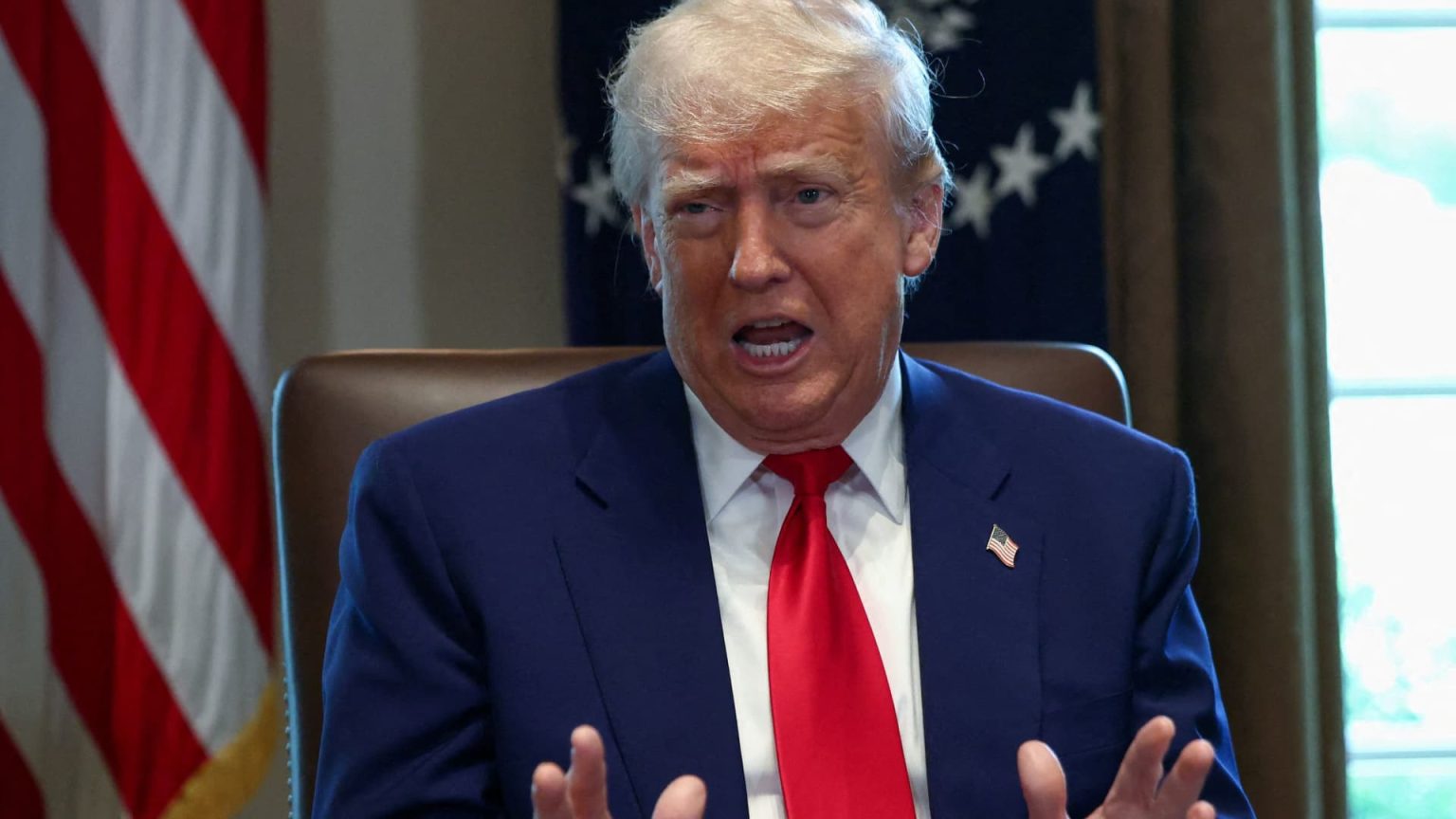In a significant escalation of tension between the Trump administration and Harvard University, President Donald Trump has announced plans to revoke the Ivy League institution’s tax-exempt status. This move follows previous threats directed at Harvard and other elite schools over accusations of fostering antisemitism and discrimination on their campuses. In a brief post on Truth Social, Trump asserted, “It’s what they deserve!” highlighting his intent to take a more aggressive stance towards the university and its policies.
This announcement has the potential to expand an ongoing legal battle as the administration seeks broader oversight of educational institutions and access to their federal research grants. The situation has also raised concerns about targeting international students, with the government taking steps to revoke visas and implement stricter regulations on university enrollment.
| Article Subheadings |
|---|
| 1) Trump’s Threat to Tax-Exempt Status |
| 2) Legal Implications and Ongoing Lawsuits |
| 3) Broader Actions Against Other Elite Institutions |
| 4) Impact on International Students |
| 5) Response from Harvard and Future Developments |
Trump’s Threat to Tax-Exempt Status
President Trump has explicitly threatened to revoke Harvard University’s tax-exempt status, a move that would signify a profound shift in how the federal government relates to higher education institutions. The tax-exempt status enables universities to accept donations without tax penalties and is crucial for their financial operations. Trump’s assertion, made in a Truth Social post, indicates a direct link between his administration’s stance on perceived discrimination and financial privileges granted to universities. The president stated, “Remember, Tax Exempt Status is totally contingent on acting in the PUBLIC INTEREST!” This comment underscores the administration’s argument that institutions should adhere to political and social expectations to maintain such statuses.
Legal Implications and Ongoing Lawsuits
The revocation of tax-exempt status opens up a complex legal landscape. Harvard University has already instigated legal action against the Trump administration, arguing that the federal government’s threats to curtail financial support are “unprecedented and improper.” The administration’s decision to freeze $2.2 billion in federal grants to Harvard has only intensified the dispute. Legal experts are weighing in on the implications of such a move, suggesting that it could lead to a protracted legal battle that questioning the government’s authority to enforce such sanctions. The lawsuit may focus on whether the federal government has the right to impose operational changes through financial coercion, which could set a significant precedent for future federal-university relations.
Broader Actions Against Other Elite Institutions
Trump’s campaign against Harvard is not isolated; it is reflective of broader actions against various elite institutions that he claims do not align with public interests. The administration has made it clear that it perceives a trend of liberal attitudes dominating campuses, which it links to antisemitic sentiment and other forms of discrimination. This perspective has resulted in proposed alterations to how federal funding is allocated, threatening to withhold financial support unless schools comply with perceived expectations of conduct. Such tactics may further strain relationships between the federal government and educational institutions, particularly those with dissenting viewpoints.
Impact on International Students
Amid these struggles, international students have found themselves at the center of the controversy. The Trump administration has taken aggressive actions against several international students, including revoking their visas and imposing restrictions on campus enrollments. These measures raise serious concerns about the implications for diversity and inclusion at American universities. The threat to rescind the ability of institutions like Harvard to admit international students may also deter prospective applicants, leading to a significant decline in the cultural and intellectual richness that such diversity brings to university environments.
Response from Harvard and Future Developments
Harvard has yet to issue a detailed public response to Trump’s latest announcement regarding tax-exempt status. In previous instances, the university has defended its policies and practices vigorously, highlighting its commitment to fostering an inclusive environment. The institution’s leadership is likely engaged in strategic discussions about how best to respond to the administration’s threats, both publicly and legally. As this situation develops, stakeholders across the educational landscape will be watching closely to see how it unfolds and what impacts it will have on the future of education policy in the United States.
| No. | Key Points |
|---|---|
| 1 | Trump threatens to revoke Harvard’s tax-exempt status due to perceived discrimination issues. |
| 2 | Legal battles are anticipated as Harvard files a lawsuit challenging the administration’s actions. |
| 3 | Other elite institutions could also face similar threats from the Trump administration. |
| 4 | International students are increasingly scrutinized and may face stricter regulations on visas. |
| 5 | Harvard’s response and the overall outcome of this conflict remain uncertain as developments unfold. |
Summary
The escalation of tensions between the Trump administration and Harvard University reflects a larger conflict over university governance, educational policies, and social justice issues. With the administration threatening to revoke tax-exempt status and freeze federal funding, the battle is likely to develop into a significant legal confrontation. The implications extend beyond Harvard, influencing how other elite institutions and international students navigate their future under governmental scrutiny. As these events progress, the educational landscape may face profound transformations.
Frequently Asked Questions
Question: Why has Trump threatened Harvard’s tax-exempt status?
Trump’s administration has accused Harvard of fostering antisemitism and discrimination, arguing that institutions should act in the public interest to maintain their tax-exempt status.
Question: What are the potential legal consequences for Harvard?
Harvard has initiated legal action against the federal government, challenging the legitimacy of the threats to revoke funding and tax exemptions, which may lead to a significant court battle regarding federal authority over educational institutions.
Question: How will these actions impact international students?
The moves against Harvard may lead to stricter visa regulations for international students and potentially decrease the diversity and inclusion within American universities.


